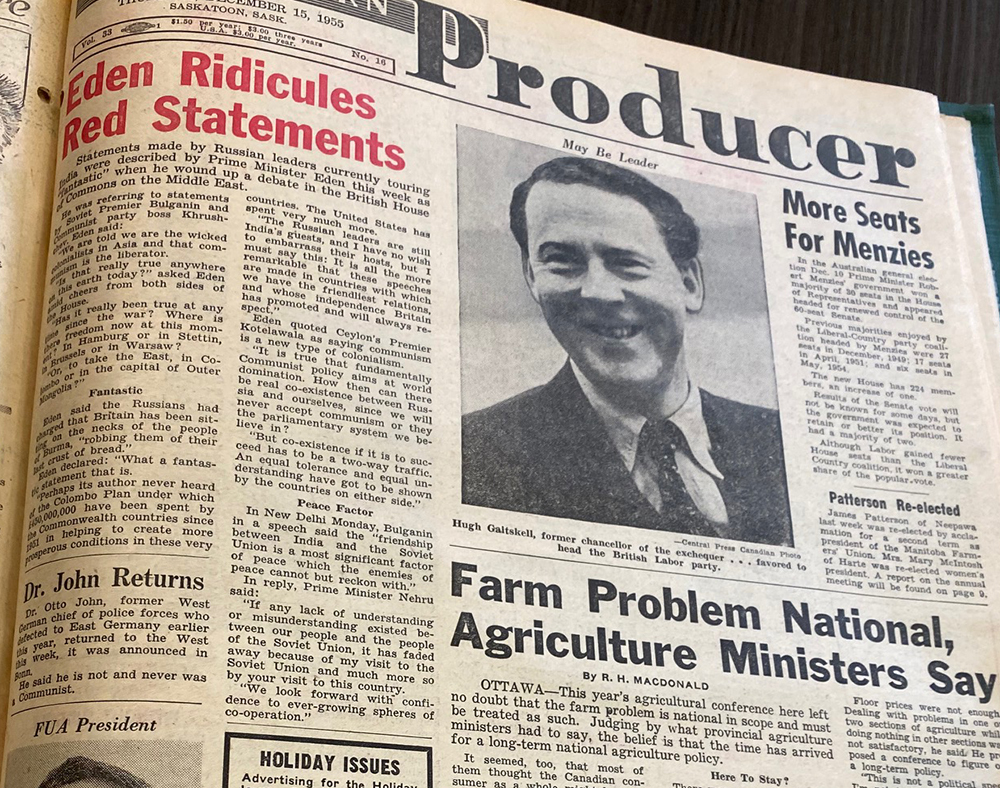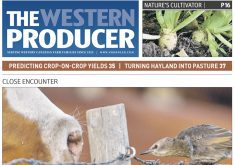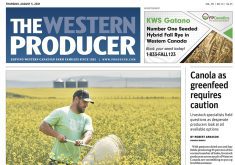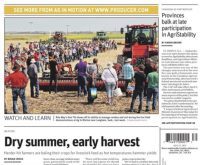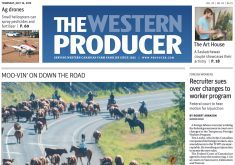For the next year, this column will mark The Western Producer’s 100th anniversary by taking a deep dive every week into a past issue of the paper.
Regular readers of this column might remember Joe Phelps from last week, when the Saskatchewan Farmers Union president got into a verbal dust-up with one of his retiring vice-presidents during the group’s annual convention.
Well, the fiery farm politician was at it again two years later, this time described in a story running in the Dec. 15, 1955, issue. Phelps was attending the federal-provincial agriculture conference in Ottawa as a representative of the Interprovincial Farm Union Council.
Read Also

Crop profitability looks grim in new outlook
With grain prices depressed, returns per acre are looking dismal on all the major crops with some significantly worse than others.
Farm leaders were in the nation’s capital to talk about agriculture’s troubles with government officials, and it sounds like things got a little heated.
At one point, Saskatchewan Wheat Pool president J.H. Wesson made a plea for sound thinking and steady spirits during talks on the commodity surplus problem.
“Let’s not get panicky,” Wesson was reported to have said at one point.
“Carping criticism won’t help us sell wheat.”
But Phelps was having none of it.
He said he didn’t think his “good friend Mr. Wesson” had meant his plea for him, but then went on to slam not only the federal government’s wheat policies but also the policies proposed by the Canadian Federation of Agriculture, which he said had been rejected by farmers.
The guy must have been every farm newspaper reporter’s dream back then.
That story marks the first time since I’ve started looking through back issues of the paper that a reporter’s byline has been used.
In this case, it was by R.H. MacDonald.
He had retired long before I started working at the paper, but when I arrived in the newsroom there were photos hanging on the walls that he had taken.
“There was a mood of either uncertainty or reluctance to admit in straight words that perhaps agricultural surpluses in the face of stationary or reducing markets were here to stay and plans must be worked out to handle them for many years to come,” Macdonald wrote in his story about agriculture conference.

